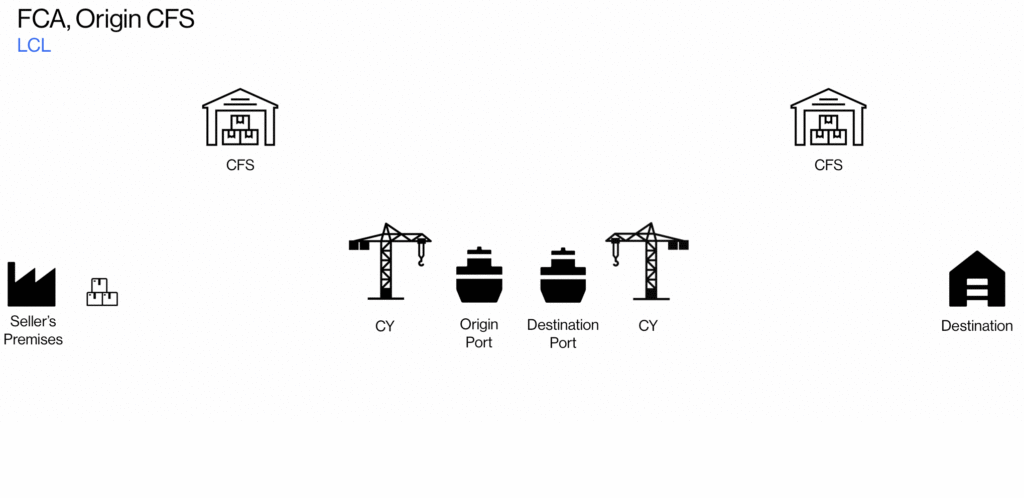FCA is an incoterm suitable for containerized ocean shipments.
What Is FCA?
FCA (Free Carrier) is an incoterm (per 2010 Incoterms®) that requires the seller to clear the goods for export and to either: deliver the goods to the buyer at the seller’s premises or deliver the goods to the buyer at another named place. When using the FCA incoterm, the point at which the seller is delivering the goods to the buyer must be named: e.g., “FCA, Name of Origin CFS.”
FCA can be used for all modes of transport, including LCL (Less than Container Load), FCL, and air.
If the seller is delivering the goods to the buyer at the seller’s premises, the seller is responsible for the cost and risk of loading the cargo onto the buyer’s provided transport.

If the seller is delivering the goods to the buyer at another named location, like a CFS (Container Freight Station) or Container Yard, the seller is responsible for making the goods ready for unloading, but not unloading the goods at the destination point.
An addition to FCA was introduced by Incoterms® 2020. Many sellers were incorrectly using FOB when they would prefer to use FCA due to the simple reason that banks require an onboard Bill of Lading to be presented if payment needed to be done using a Letter of Credit. The new FCA provision makes it possible to the carrier to issue to the seller a transport document stating that the goods have been loaded, if the parties have so agreed. This Bill of Lading with an onboard notation can be issued by the carrier under the instruction of the buyer and at the buyers cost and risk.

It is ultimately up to the buyer and the seller to agree on each party’s responsibility of cost and risk before the shipment begins.